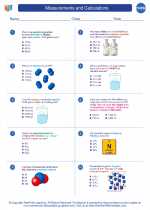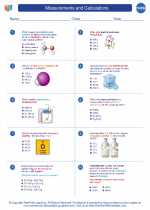State of Matter
States of matter are the distinct forms that different phases of matter take on. The three most common states of matter are solid, liquid, and gas. Each state has unique properties and characteristics that distinguish it from the others.
Solid
- Definite shape and volume
- Particles are closely packed and vibrate in fixed positions
- Not easily compressible
- Examples: ice, wood, metal
Liquid
- Definite volume, but takes the shape of its container
- Particles are loosely packed and can move past one another
- Not easily compressible
- Examples: water, milk, oil
Gas
- No definite shape or volume
- Particles are far apart and move freely
- Highly compressible
- Examples: air, steam, helium
Changes in State
Matter can change from one state to another through the processes of melting, freezing, evaporation, condensation, sublimation, and deposition.
Plasma
Besides the three common states of matter, there is also a fourth state known as plasma, which consists of ionized particles. Plasma is commonly found in stars and fluorescent lights.
Study Guide
- Define the term "state of matter" and list the three most common states of matter.
- Describe the characteristics of each state of matter, including the arrangement of particles and compressibility.
- Explain the processes involved in changing from one state of matter to another.
- Research and present information on the properties and occurrences of plasma.
Understanding the states of matter is fundamental to comprehending the behavior of substances and their interactions in various chemical and physical processes.
.◂Chemistry Worksheets and Study Guides High School. Measurements and Calculations
Worksheet/Answer key Measurements and Calculations
Measurements and Calculations  Worksheet/Answer key
Worksheet/Answer key Measurements and Calculations
Measurements and Calculations  Worksheet/Answer key
Worksheet/Answer key Measurements and Calculations
Measurements and Calculations 

 Worksheet/Answer key
Worksheet/Answer key
 Worksheet/Answer key
Worksheet/Answer key

The resources above cover the following skills:
CHEMISTRY
Matter and Its Interactions
Use the periodic table as a systematic representation to predict properties of elements based on their valence electron arrangement.
Use the periodic table as a model to derive formulas and names of ionic and covalent compounds.
Reading Standards for Literacy in Science and Technical Subjects
Craft and Structure
Determine the meaning of symbols, key terms, and other domain-specific words and phrases as they are used in a specific scientific or technical context relevant to Grades 9-10 texts and topics.
Reading Standards for Literacy in Science and Technical Subjects
Craft and Structure
Determine the meaning of symbols, key terms, and other domain-specific words and phrases as they are used in a specific scientific or technical context relevant to Grades 11-12 texts and topics.